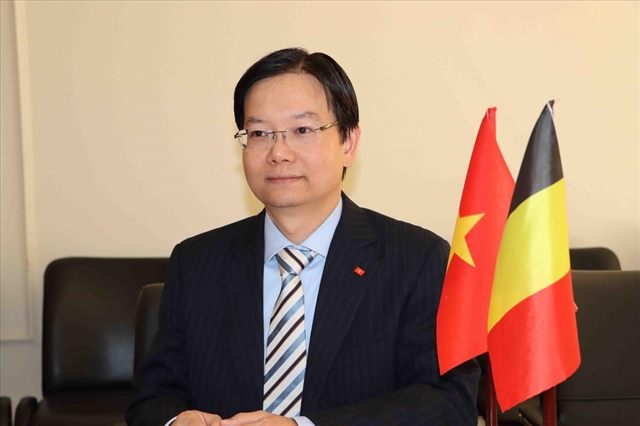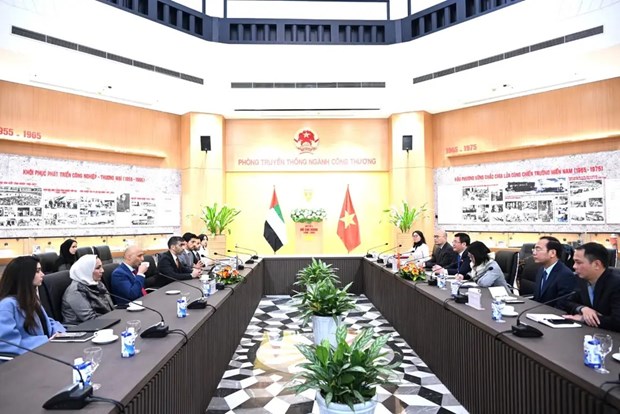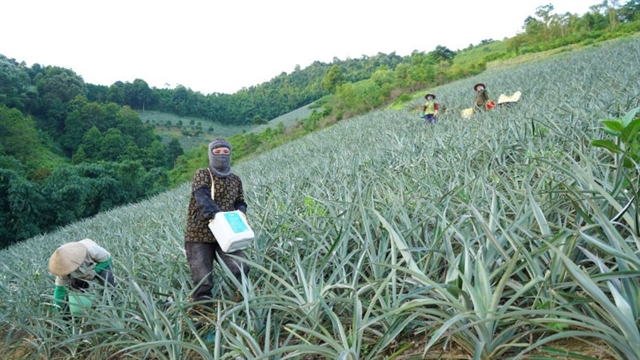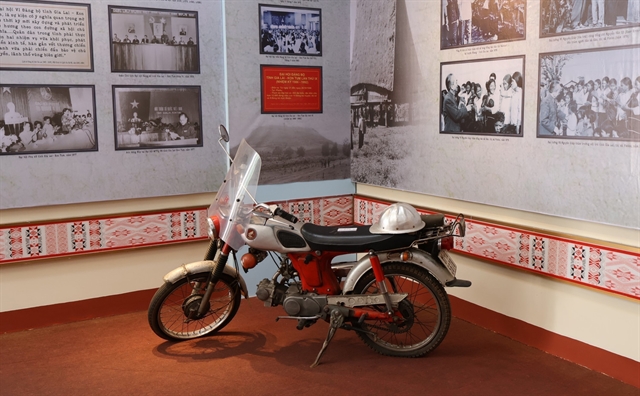 Economy
Economy


|
| Representatives from Việt Nam’s Ministry of Industry and Trade (MoIT) and the UAE Ministry of Economy at the meeting. — VNA/VNS Photo |
HÀ NỘI — Officials from Việt Nam’s Ministry of Industry and Trade (MoIT) and the UAE Ministry of Economy have agreed to speed up negotiations for a comprehensive economic partnership agreement (CEPA) between the two countries.
Welcoming Minister of State for Foreign Trade of the UAE Ministry of Economy Thani bin Ahmed Al Zeyoudi in Hà Nội on Wednesday, MoIT Minister Nguyễn Hồng Diên hailed the Việt Nam- UAE economic and trade cooperation in recent years.
The two countries have been expanding cooperation in many fields, notably with the launch of their negotiations for Việt Nam-UAE CEPA, he said.
Appreciating the efforts and results that the negotiation delegations of the two countries have made, the two officials discussed measures to address issues on which the two sides have different points of view.
Regarding bilateral cooperation, Minister Diên called on the UAE side to consider and facilitate business delegation exchanges and coordinate to organise trade promotion activities. He also proposed UAE businesses invest in Việt Nam in areas of mutual interest.
The two sides agreed to cooperate more closely to speed up the Việt Nam - UAE CEPA negotiation process and conclude it soon.
Currently, the UAE is the largest export market and the second-largest trade partner of Việt Nam in West Asia (after Kuwait).
In 2023, Việt Nam's exports to the UAE reached over US$4 billion and its imports from this market hit over $676 million, marking a year-on-year increase of 4.3 per cent and 16 per cent respectively.
Việt Nam's main exports to the UAE include mobile phones, computers and components, electrical products, household electronics, pepper, seafood, footwear, textiles, grain products, plastic, and wooden furniture. It imports raw plastics, liquefied petroleum gas (LPG), petroleum products, animal feed materials, metals and chemicals. — VNS




